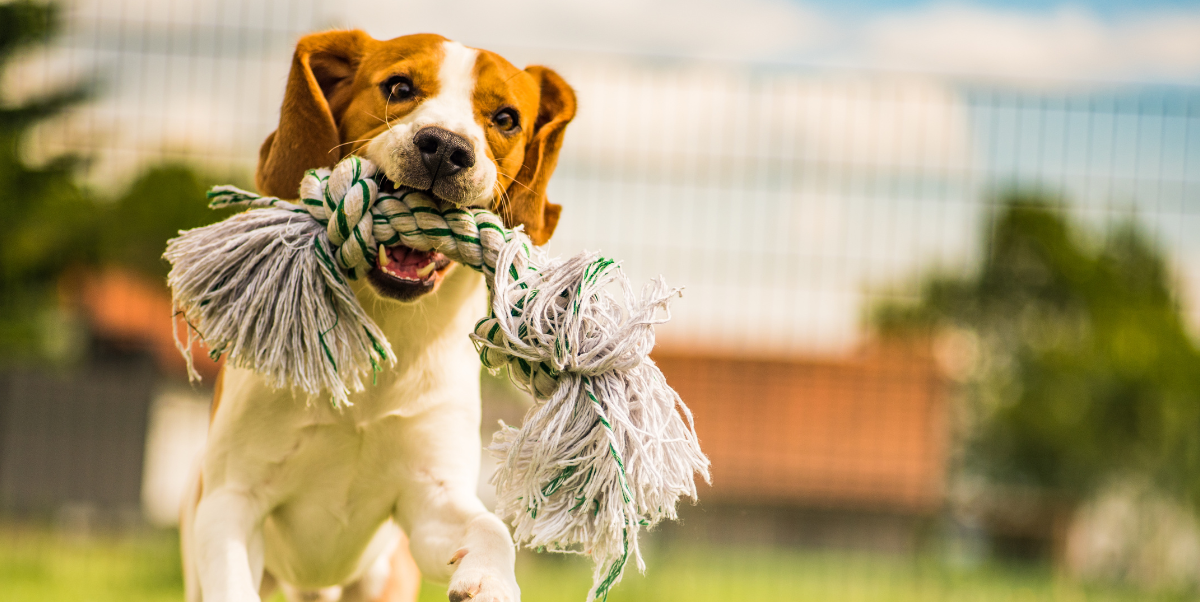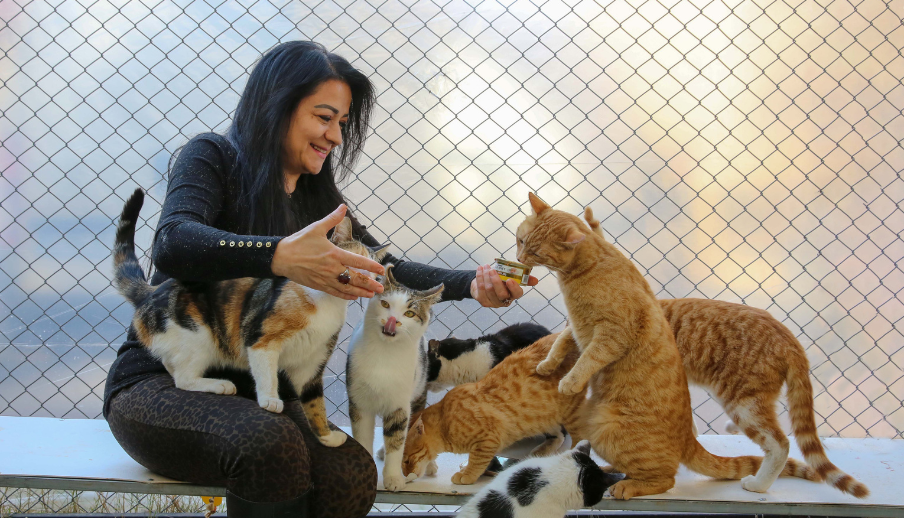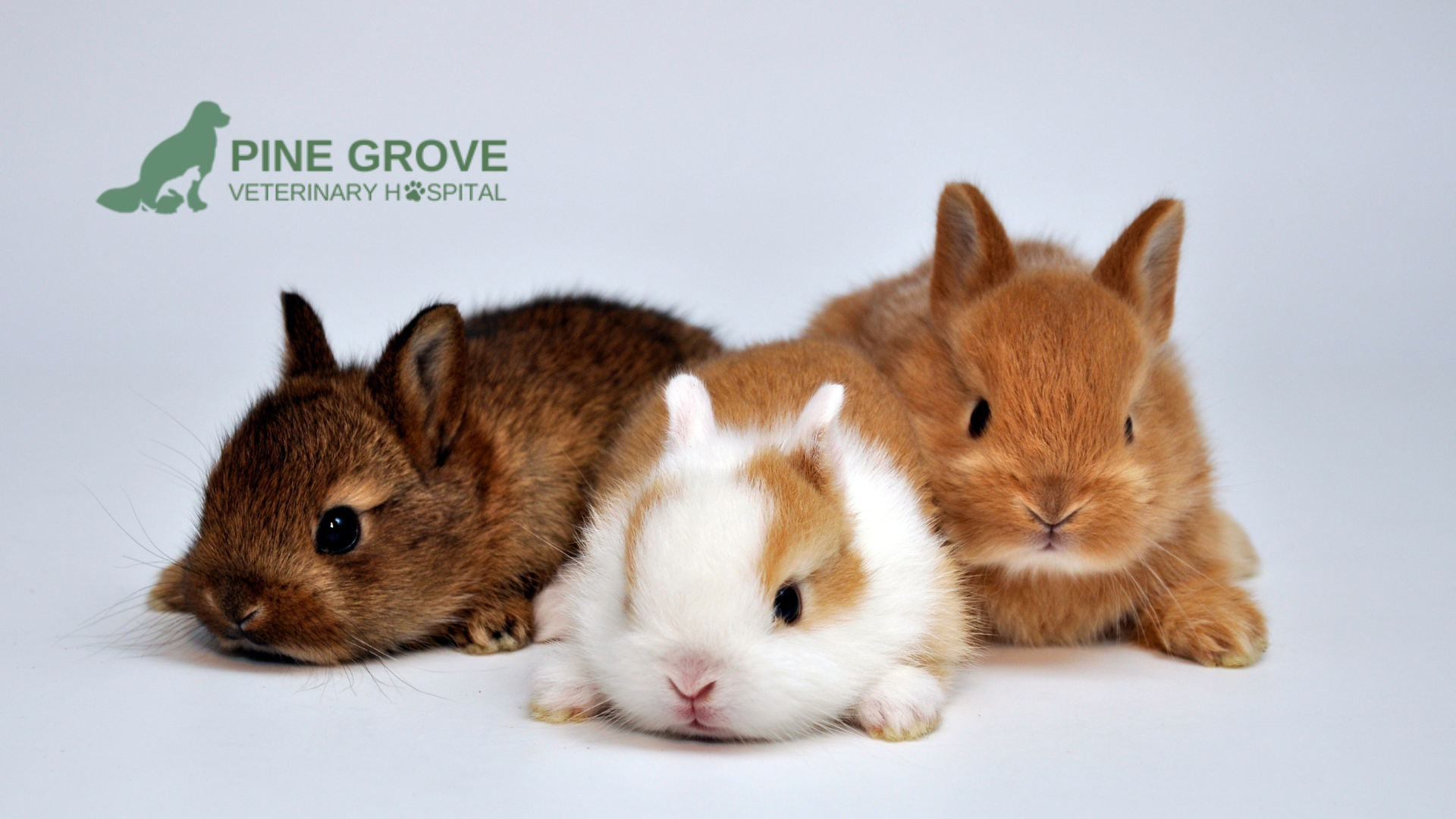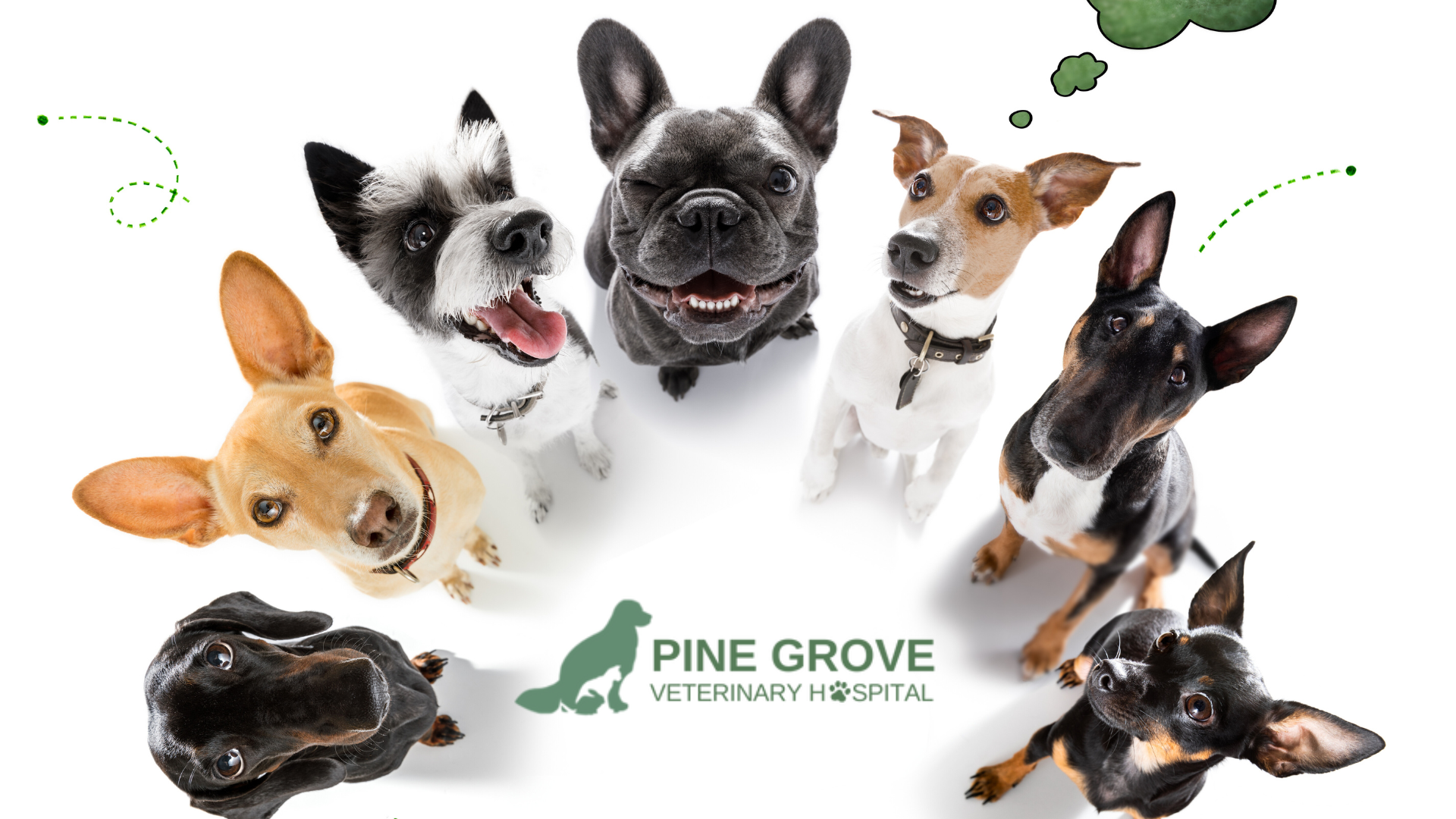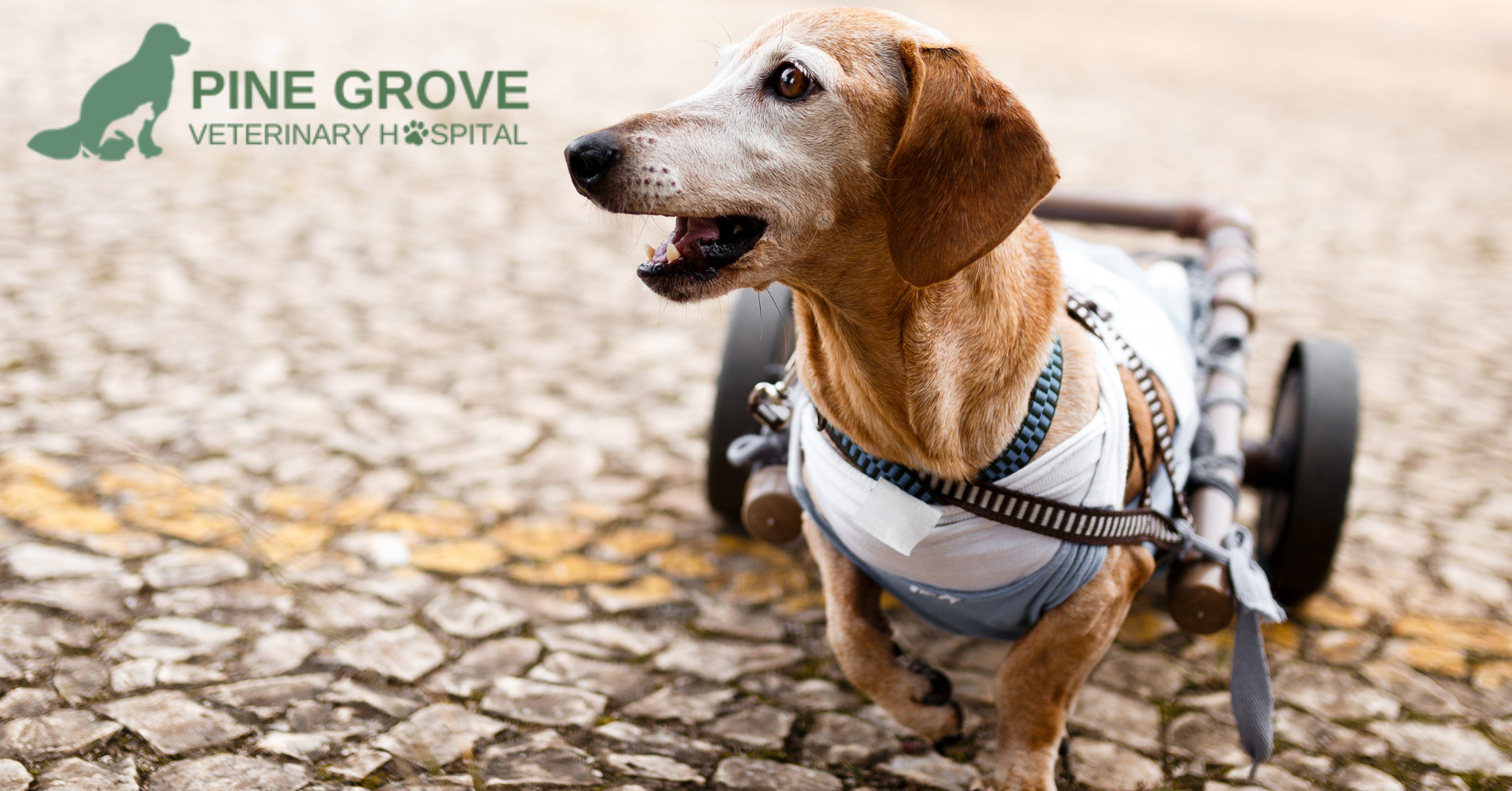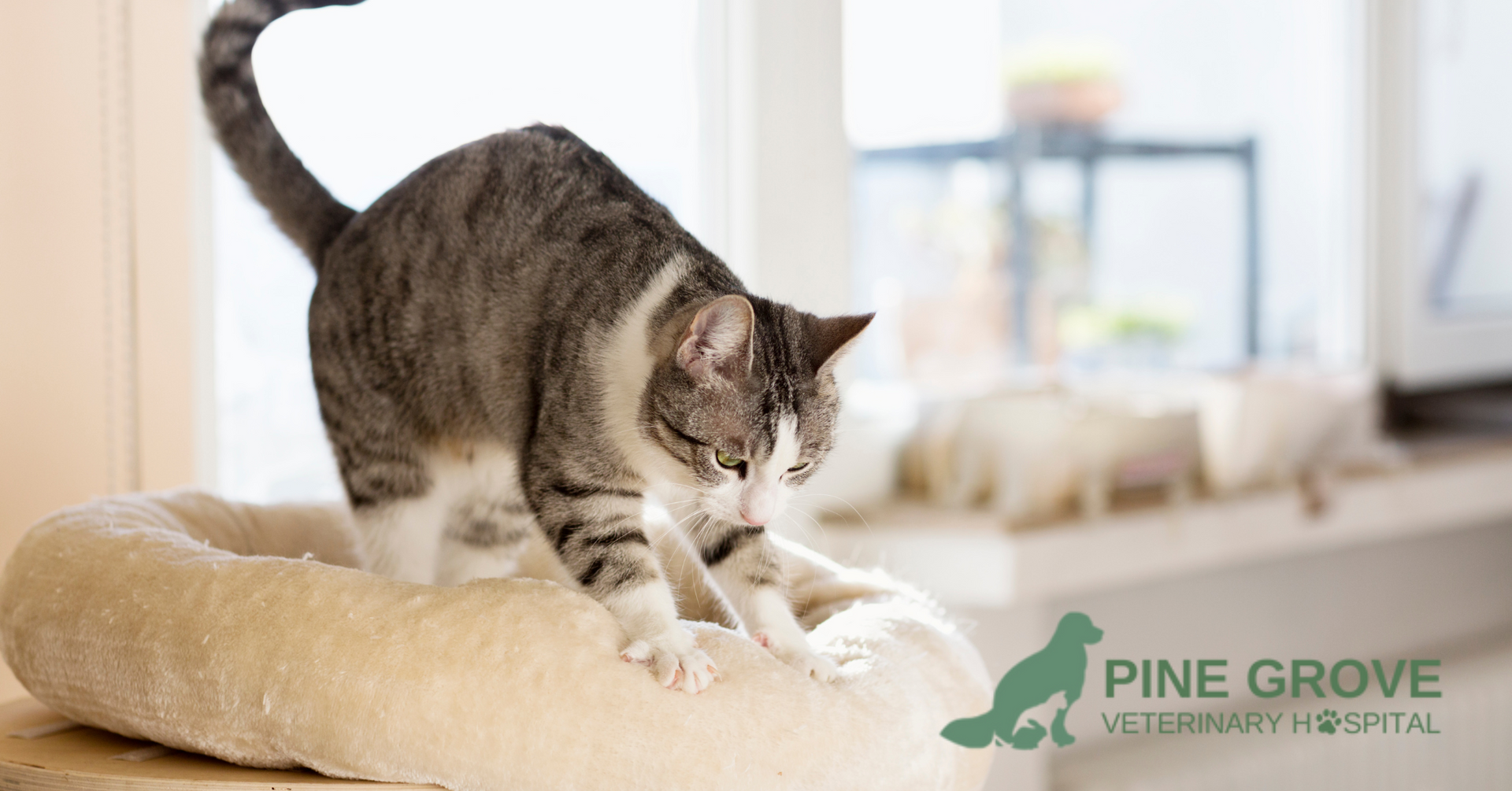Address: 4351 Burnside Line Severn, Ontario | Phone: (705) 325-2279
How Do I Know If My Dog Is Pregnant?

Having your female dog spayed and your male dogs neutered is the best way to control the pet population and prevent your pet from becoming pregnant. If you do suspect that your dog may be pregnant, it’s essential to understand the signs of pregnancy in dogs and know when to seek veterinary care. In Orillia, local veterinarians can provide confirmation and advice to ensure a healthy pregnancy for your dog. This blog will guide you through the signs of pregnancy, when to visit an Orillia vet, and what to expect throughout the process.
Early Signs of Pregnancy in Dogs
Signs can be subtle in the early stages of pregnancy, and it may be challenging to determine whether your dog is pregnant without veterinary confirmation. However, several early signs may indicate pregnancy:
- Changes in Appetite: One of the first signs of pregnancy in dogs is a change in appetite. Your dog may experience a decrease in appetite or become pickier about food in the first few weeks. As pregnancy progresses, her appetite is likely to increase.
- Decrease in Energy Levels: Like humans, pregnant dogs may become tired and less energetic. If your typically active dog seems lazy or disinterested in play, this could be an early sign of pregnancy.
- Behavioural Changes: Pregnant dogs may exhibit changes in behaviour, such as becoming more affectionate or seeking out quiet, secluded spaces. They may also become more protective or irritable.
- Nipple Changes: Your dog’s nipples may begin to enlarge and become more prominent as early as two weeks into pregnancy. You may also notice that the area around the nipples becomes darker or pinker.
These early signs are not definitive proof of pregnancy, and seeking confirmation from an Orillia vet is essential. Veterinary confirmation ensures you’re adequately informed and prepared to care for your pregnant dog.
When to Visit an Orillia Vet
If you suspect your dog might be pregnant, it’s essential to visit an Orillia vet as soon as possible to confirm the pregnancy and assess your dog’s health. An early vet visit ensures that your dog receives the necessary care and nutrition throughout the pregnancy.
- Physical Examination: Your vet will perform a physical examination to check for any signs of pregnancy, such as changes in the abdomen or nipples. While this examination can provide clues, it is only sometimes definitive in the early stages.
- Ultrasound: Ultrasounds are one of the most reliable methods of confirming pregnancy in dogs. Your vet may recommend an ultrasound around 25-30 days after mating to detect the presence of embryos. Ultrasounds also allow the vet to monitor the health of the developing puppies.
- Blood Tests: Another way to confirm pregnancy is through a blood test that measures the hormone relaxin. Pregnant dogs produce relaxin, which can be detected around 25 days after conception.
- X-rays: Later in the pregnancy, usually after 45 days, your vet may perform an x-ray to determine the number of puppies your dog is carrying. This helps you prepare for birthing and ensures that all puppies are delivered safely.
Visiting an Orillia vet early in your dog’s pregnancy is crucial to ensure the mother and puppies remain healthy throughout the gestation period. Your vet can also guide you on how to care for your pregnant dog, including recommendations for diet and exercise.
How to Care for Your Pregnant Dog
Once your dog’s pregnancy is confirmed, it’s important to take the necessary steps to care for her throughout the gestation period, which typically lasts between 58 and 68 days.
- Proper Nutrition: Pregnant dogs require more calories and nutrients to support their growing puppies. Your vet may recommend switching to a portion of high-quality puppy food to ensure your dog is receiving adequate nutrition. It’s also essential to always provide fresh water and monitor your dog’s weight to avoid excessive weight gain.
- Exercise: While keeping your dog active is essential, you should adjust her exercise routine to be less intense as pregnancy progresses. Gentle walks and playtime are sufficient to maintain her health without overexertion.
- Comfortable Space: As your dog’s pregnancy advances, she may seek quiet, comfortable resting places. Prepare a designated area with soft bedding where she can relax and feel secure. This will also be the area where she will give birth, so it’s essential to keep it clean and free from stressors.
- Regular Vet Checkups: Schedule regular checkups with your Orillia vet to monitor your dog’s health and the development of her puppies. These visits will help catch any potential issues early and ensure your dog receives the best care throughout pregnancy.
By providing proper care and maintaining regular vet visits, you can help ensure a healthy pregnancy and delivery for your dog.
Preparing for the Birth of the Puppies
As your dog approaches the end of her pregnancy, preparing for the birthing process, also known as whelping, is essential. Knowing the signs of labour and having a plan will help the process go smoothly.
- Signs of Labor: A few days before labour begins, your dog’s body temperature may drop below 100°F (37.8°C). Other signs include restlessness, nesting behaviour, and loss of appetite. Your dog may also begin panting or pacing as contractions start.
- Whelping Kit: Prepare a whelping kit with clean towels, disposable gloves, scissors, and antiseptic. It’s also a good idea to have the contact information for an emergency vet in Orillia on hand, just in case complications arise during delivery.
- Veterinary Assistance: While most dogs can deliver puppies without assistance, monitoring the birthing process closely is essential. If your dog strains for more than 30 minutes without giving birth to a puppy or if more than two hours pass between puppies, contact an emergency vet in Orillia immediately.
- Post-Delivery Care: After the puppies are born, ensure that both the mother and puppies are warm and comfortable. Monitor the puppies for signs of weakness or difficulty nursing, and schedule a vet visit to assess their health within the first few days after birth.
Proper preparation and support during labour and delivery will help ensure your dog's and her puppies' health and safety.
Conclusion
Knowing whether your dog is pregnant and understanding the steps can help ensure a smooth and healthy experience for both the mother and the puppies. From recognizing the early signs of pregnancy to visiting your Orillia vet for confirmation, caring for your dog throughout the pregnancy is essential. By providing the proper nutrition, exercise, and veterinary care, you can support your dog’s pregnancy and prepare for the arrival of her puppies.
Frequently Asked Questions
How can I confirm my dog’s pregnancy?
The most reliable way to confirm your dog’s pregnancy is by visiting a vet for an ultrasound or blood test. Your vet can also perform a physical examination to detect early signs of pregnancy.
How long is a dog’s pregnancy?
A dog’s pregnancy, or gestation period, typically lasts between 58 and 68 days.
What should I feed my pregnant dog?
Your vet may recommend switching to high-quality puppy food to ensure your pregnant dog receives nutrients. Avoid overfeeding, and make sure fresh water is always available.
What should I do if my dog has difficulty during labour?
If your dog has difficulty during labour, such as straining for more than 30 minutes without delivering a puppy, immediately contact an emergency vet in Orillia for assistance.
How soon should I take the puppies to the vet after birth?
It’s a good idea to schedule a vet visit within the first few days after the puppies are born to ensure they are healthy and receive proper care from their mother.
Share this article by using the icons below!
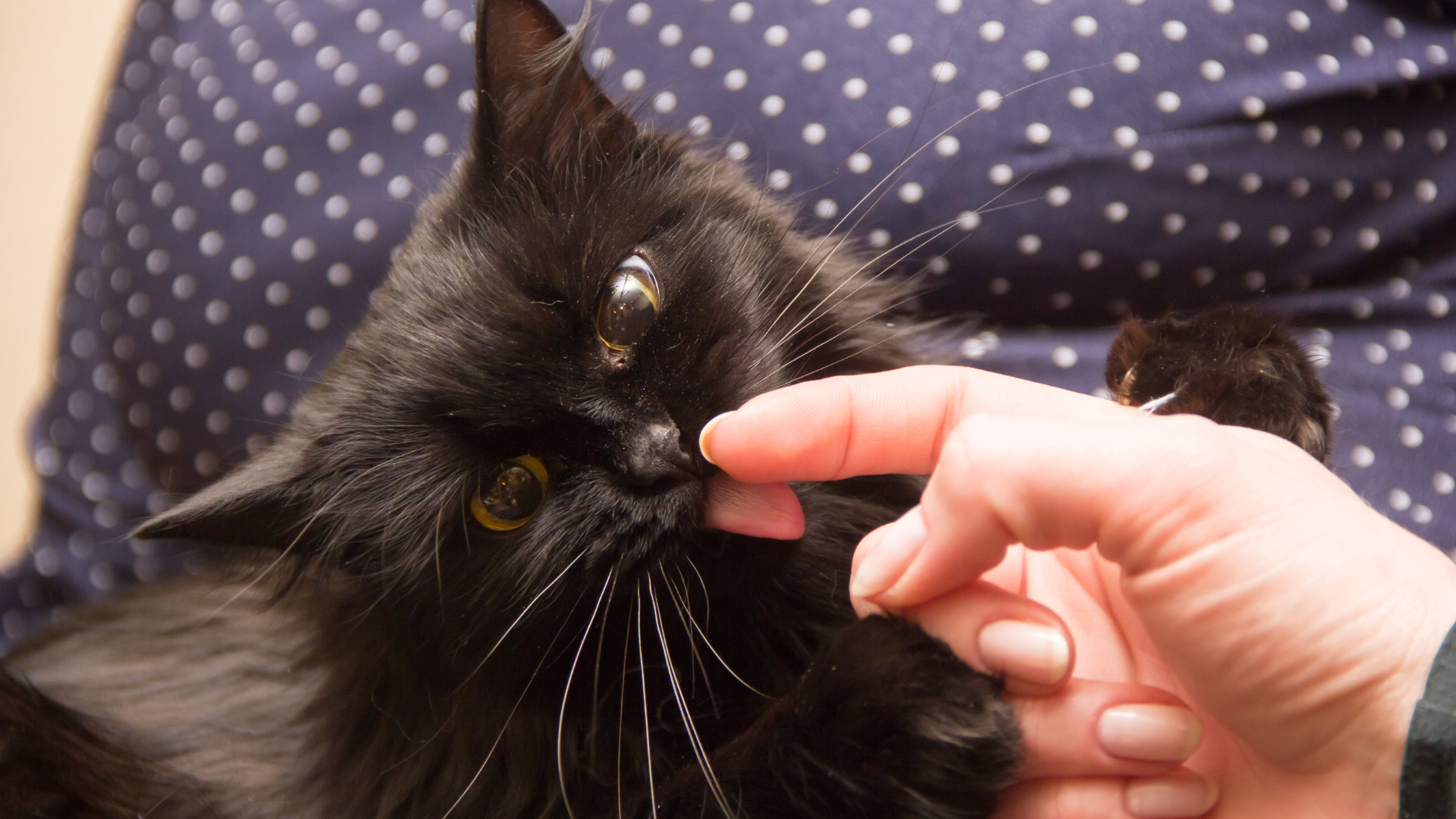
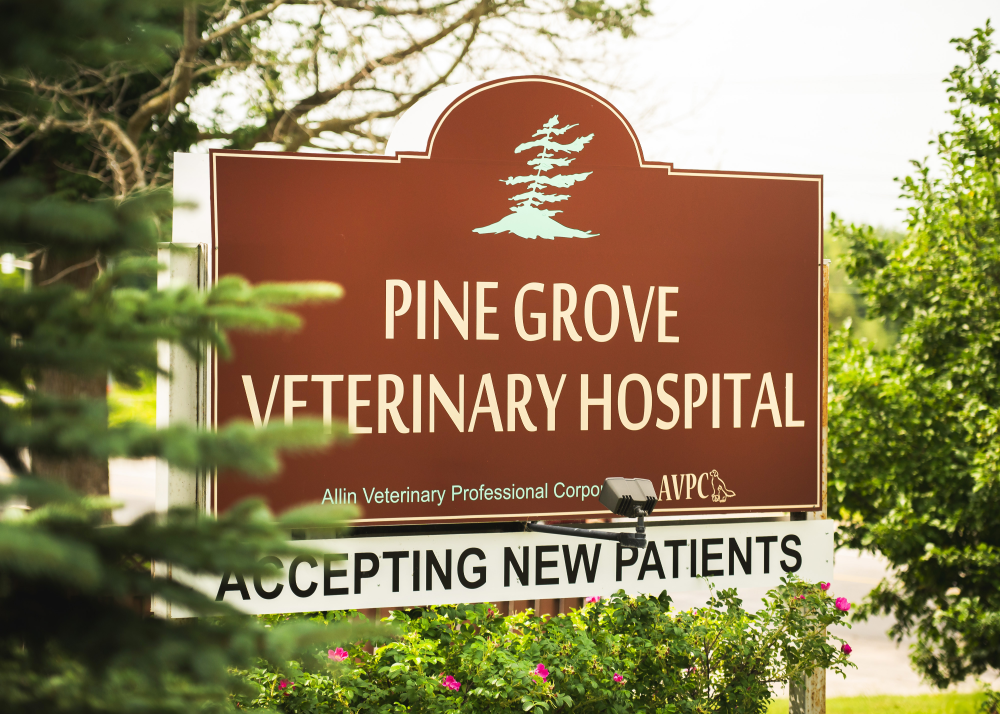
Clinic Hours
Monday: 8:00 am - 06:00 pm
Tuesday: 8:00 am - 05:00 pm
Wednesday: 8:00 am - 05:00 pm
Thursday: 8:00 am - 05:00 pm
Friday: 8:00 am - 04:00 pm
Saturday: Closed
Sunday: Closed
© Copyright 2024 | All Rights Reserved | Pine Grove Veterinary Hospital


